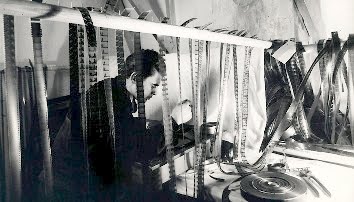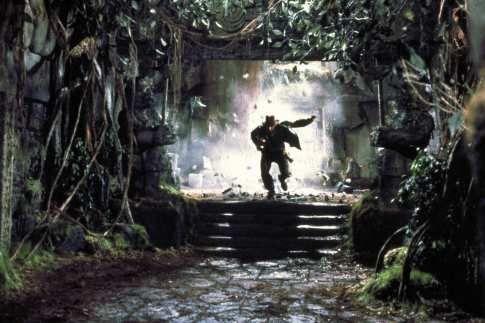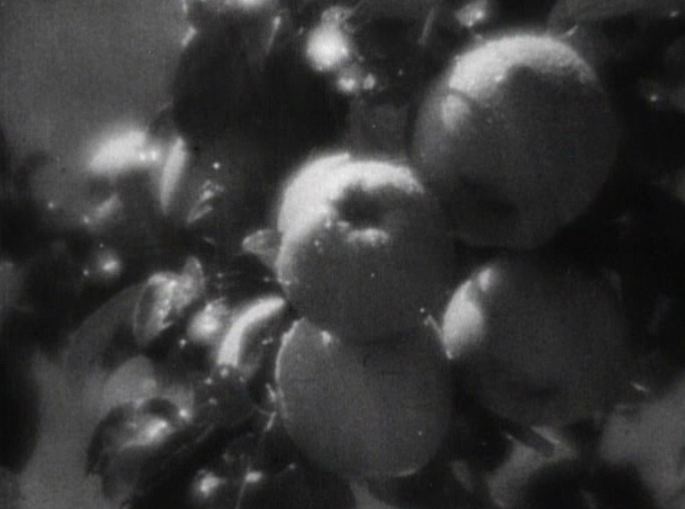From the Chicago Reader (May 10, 2002). — J.R.

Cinema Without Borders: Films by Joris Ivens
A word of advice to film artists who want to get ahead: don’t move around too much. Film history often gets subsumed under national film history, so filmmakers who keep moving risk getting lost. And stay out of politics, since getting into them invariably puts you on either the winning or the losing side. If you’re on the losing side, many national film histories will write you out entirely; if you’re on the winning side, chances are your film will date faster than last week’s newspaper.
These somber reflections are prompted by what I’ve been able to piece together about the extraordinary career of the Dutch-born leftist documentary and experimental filmmaker Joris Ivens (1898-1989) — who lived in so many places, did so many things, and made so many films he’s come dangerously close to being shut out of history. From the vantage point of America in 2002, I suppose he’d have to be assigned to the losing side, as mainly a mouthpiece for Marxist party lines from the 30s onward, though that would grossly oversimplify his career. Some of the causes he devoted part of his life to, including Stalinist Russia and Maoist China, are now discredited, with good reason, but that doesn’t mean the films he made on their behalf can simply be dismissed or are without interest. Read more
From The Soho News (June 10, 1981). I posted the first part of this, on Raiders of the Lost Ark, some time ago, but this, belatedly, is the full column — and, in my opinion, the best of my “Declarations of Independents” columns for The Soho News. (I believe there were ten of these in all.) Note: The film stills from Of Light and Texture are copyrighted by the Estate of Andrew Noren. — J.R.
Raiders of the Lost Ark
Cheech & Chong’s Nice Dreams
History of the World, Part I
Of Light and Texture (Museum of Modern Art)

As the most gifted and congenial by far of all the New Hollywood tyros, Steven Spielberg may be the only consummate master of the post-TV movie spectacular — the blockbuster that’s diced out into bite-size narrative units like Chicken McNuggets (every structural hint of bone or body part processed out of existence, every juicy piece a separate unique experience, designed to vanish without a trace). Aspiring to the condition of continuous action as if that were a delirious state of grace — borne aloft by superbly timed jolts and impossibly narrow escapes, usually in three to five-minute setpiece doses — Raiders of the Lost Ark (rated PG for pretty good) all but bypasses character and logic for a string of stunning rides through Disneyland, one right after the other, each one a visceral treat. Read more
From the June 7, 2002 Chicago Reader. This is also reprinted in my book Essential Cinema. — J.R.

Landscapes of the Soul: The Cinema of Alexander Dovzhenko
When I speak of poetry, I am not thinking of it as a genre. Poetry is an awareness of the world, a particular way of relating to reality….Think of Mandelstam, think of Pasternak, Chaplin, Dovzhenko, Mizoguchi, and you’ll realize what tremendous emotional power is carried by these exalted figures who soar above the earth, in whom the artist appears not just as an explorer of life, but as one who creates great spiritual treasures and that specific beauty which is subject only to poetry. Such an artist can discern the lines of the poetic design of being. He is capable of going beyond the limitations of coherent logic, and conveying the deep complexity and truth of the impalpable connections and hidden phenomena of life. — Andrei Tarkovsky, Sculpting in Time
It is possible that we are still in a pre-historic stage of cinema, for the great history of cinema will begin when it leaves the frame of ordinary artistic representation and grows into a tremendous and extraordinarily encompassing perceptive category. — Alexander Dovzhenko, 1933

Ukrainian writer-director Alexander Dovzhenko may be the most neglected major filmmaker of the 20th century. Read more




